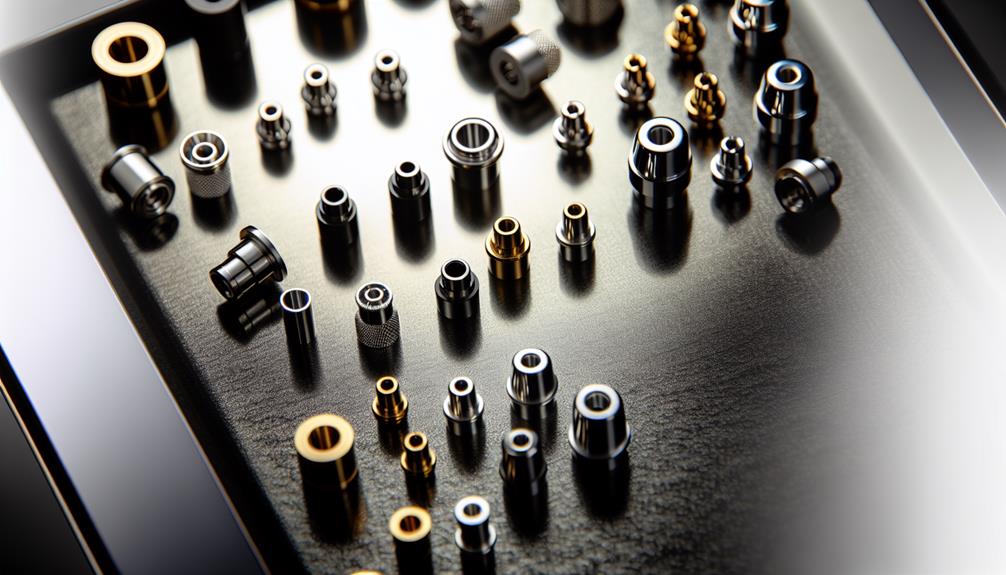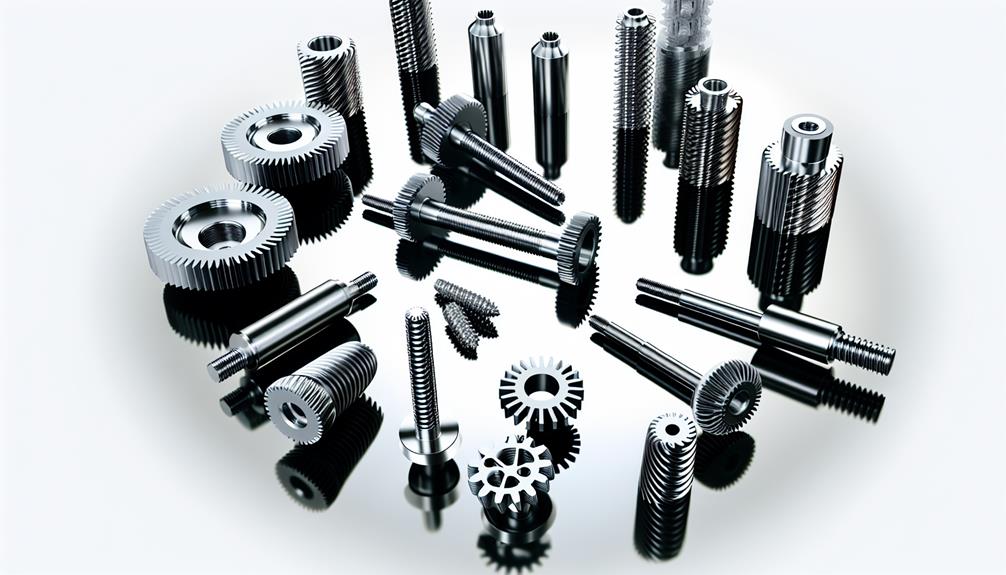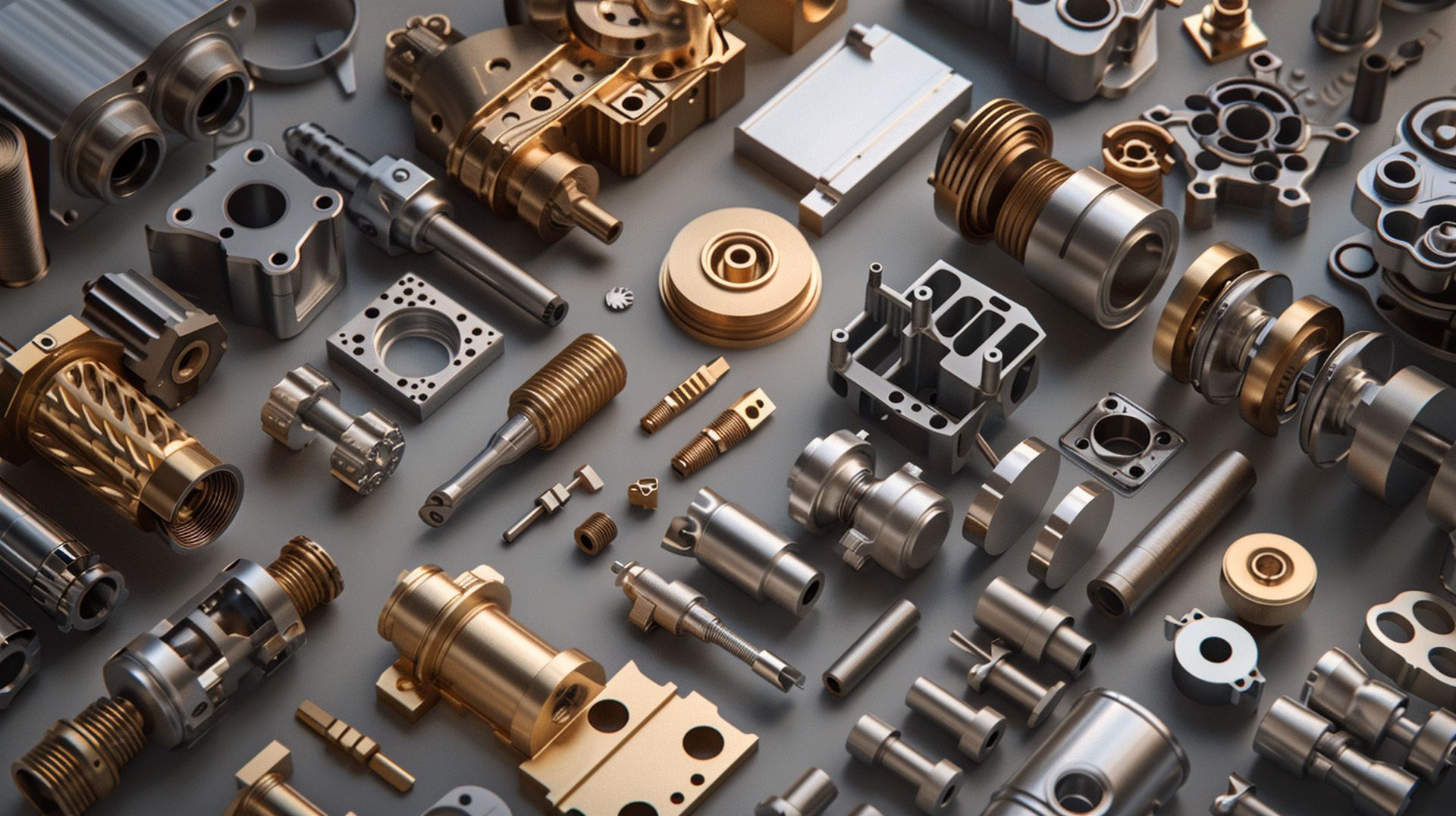Why CNC Machining Small Parts Is Essential for Modern Manufacturing
In the realm of modern manufacturing, the efficacy of Computer Numerical Control (CNC) machining, especially in the production of small components, is becoming increasingly indispensable. This technique, noted for its precision and repeatability, has revolutionized the manufacturing industry by automating the labor-intensive processes that were once manual, thereby dramatically enhancing efficiency and cost-effectiveness.
Moreover, the versatility of CNC machining has facilitated its adoption across diverse industries, from automobile to electronics, thereby underscoring its vital role in present-day manufacturing. As we further investigate this topic, the question that arises is, how will the continued evolution of CNC machining impact the future of manufacturing?
Key Takeaways
- Precision in small parts manufacturing is crucial for exact specifications and functionality.
- CNC machining small parts offers high energy conservation, waste reduction, and efficiency.
- CNC technology in diverse industries like aerospace, automotive, medical, and electronics enhances production and quality control.
- The future of manufacturing with CNC involves automated trends for increased productivity, accuracy, and sustainability.
Understanding CNC Machining

Delving into the realm of CNC machining, it is crucial to comprehend that this advanced process involves the use of computer-controlled machines to perform a variety of manufacturing tasks with utmost precision. This precision is made possible through the CNC programming basics, where a set of instructions, known as a program, guides the machine to perform intricate operations that would otherwise be challenging to achieve manually.
The CNC programming basics require a deep understanding of the machinist's part, including knowledge of G-codes (preparatory functions), M-codes (miscellaneous functions), and the ability to visualize the end product. The process involves the careful input of these codes into the computer, which then directs the machine's movements, cutting paths, and speeds.
Another critical aspect of CNC machining is the machining material selection. Different materials, ranging from metals to plastics, have different properties that affect the machining process. The machinist must consider factors such as the material's rigidity, heat resistance, and cost when selecting the right material for a specific task. This choice directly impacts the quality, precision, and efficiency of the CNC machining process, underscoring the need for careful consideration and control in every step.
Precision in Small Parts Manufacturing

Building on the intricacies of CNC machining and material selection, it is essential to underscore the significance of precision in the manufacturing of small parts. The manufacturing industry, particularly for small components, demands microscopic precision. This level of accuracy ensures that every part produced meets the exact specifications and tolerances required, reducing waste, enhancing product performance, and ultimately, delivering value to consumers.
The concept of microscopic precision is not just about size; it extends to the very aspect of material compatibility. Material compatibility is an essential consideration that manufacturers need to control in order to ensure the produced parts are fit for their intended applications. Different materials behave differently under various conditions, and hence, the need for precise control during the machining process.
This precision, paired with appropriate material compatibility, ensures the functionality of the manufactured parts, their longevity, and their reliability in the application for which they are designed. Any compromise on either aspect could lead to sub-optimal product performance or even failure. Therefore, meticulous attention to precision in the manufacturing of small parts is a non-negotiable element for modern manufacturing processes.
Efficiency and Cost-Effectiveness
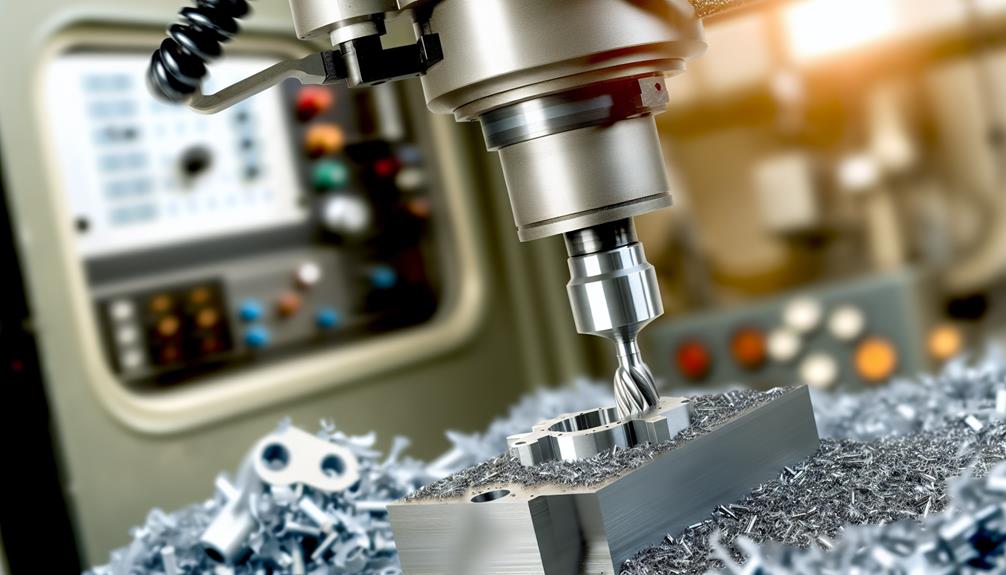
In the realm of CNC machining small parts, efficiency and cost-effectiveness play pivotal roles in streamlining the production process and optimizing the utilization of resources. Modern manufacturing demands a careful balance between maintaining high quality and minimizing unnecessary expenses. Achieving this balance becomes more manageable with CNC machining small parts due to its inherent features of Energy Conservation and Waste Reduction.
| Aspect | CNC Machining | Traditional Methods |
|---|---|---|
| Energy Conservation | High | Low |
| Waste Reduction | High | Low |
| Cost-Effectiveness | High | Varies |
Cutting-edge CNC technology allows for greater precision, resulting in significant energy conservation. It eliminates the need for manual labor, which reduces the chance of errors and, subsequently, the energy wasted in rectifying them. On a similar note, with CNC machining, the production process becomes more controlled, leading to a substantial reduction in material waste.
In terms of cost-effectiveness, CNC machining outperforms traditional methods by reducing the time taken for production, minimizing waste, and conserving energy. This contributes to the overall efficiency of the production process, thus making CNC machining small parts an essential component of modern manufacturing.
CNC Machining in Diverse Industries
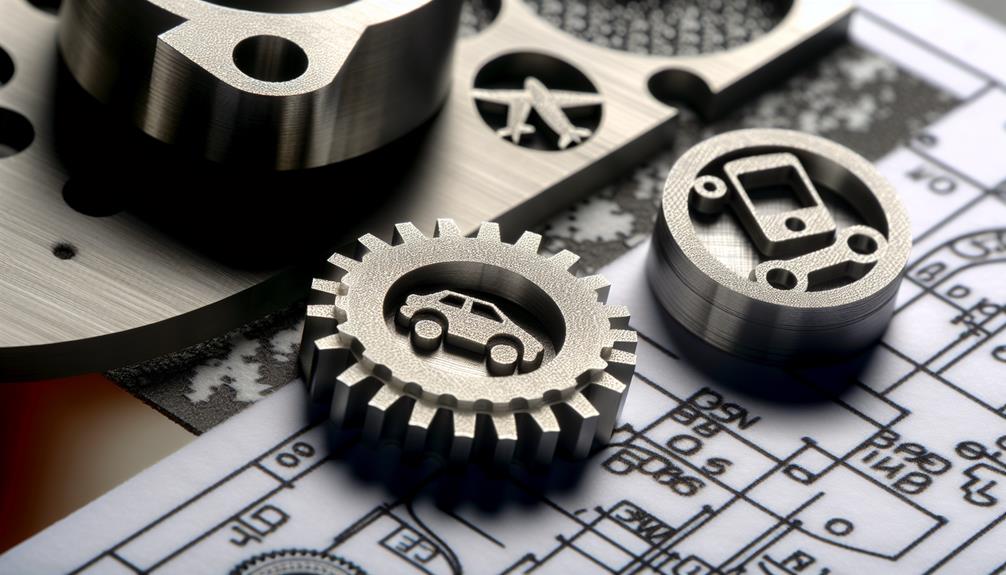
Given the efficiency and cost-effectiveness demonstrated in the production process, it is unsurprising that CNC machining small parts has found extensive applications across a wide range of industries. Notably, industry specific applications in sectors such as aerospace, automotive, medical, and electronics have significantly benefited from this technology.
The utilization of CNC machining small parts in the aerospace industry, for instance, is critical to manufacturing precise and complex components that meet stringent safety standards. In the automotive sector, the technology has streamlined the production of car parts, leading to greater consistency and quality control.
Moreover, technological advancements have led to the expansion of CNC machining into the medical industry. Now, medical devices and implants are made with unparalleled precision, thereby enhancing patient safety. In the electronics industry, the technology is used in the manufacture of intricate parts that form the backbone of today's devices.
Future of Manufacturing With CNC
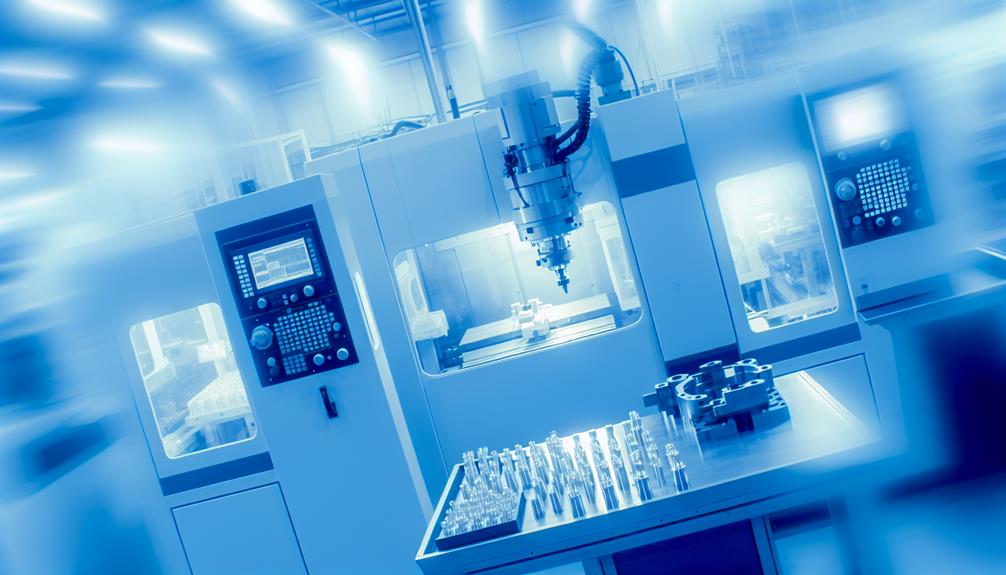
As we look towards the future, it is clear that CNC machining will continue to revolutionize the manufacturing industry with its increasing capabilities and efficiency. Among the most notable trends in this realm are Automated CNC Trends, which are set to increase productivity and accuracy in manufacturing operations.
Automated CNC Trends are essentially the incorporation of automation in CNC machines. This allows for continuous operation, reducing downtime and increasing productivity. Additionally, automation also minimizes the chance for human error, leading to more precise and high-quality parts.
Sustainability in Manufacturing is another key aspect of the future of manufacturing with CNC. As the world becomes more conscious of its environmental impact, sustainable manufacturing processes are becoming more crucial. CNC machining offers potential for increased sustainability through energy-efficient operations, reducing waste, and the ability to use recycled materials.
Frequently Asked Questions
What Types of Materials Can Be Used in CNC Machining for Small Parts?"
CNC machining for small parts utilizes a wide array of materials, including metals, plastics, and ceramics. Material selection often balances durability requirements with cost efficiency, ensuring both product longevity and economic feasibility.
What Is the Typical Lead Time for Manufacturing Small Parts Using CNC Technology?"
The typical lead time for manufacturing small parts using CNC technology is significantly reduced, thanks to its speed efficiency. This time-saving benefit provides manufacturers with greater control over their production schedules and processes.
What Types of Safety Measures Are in Place During the CNC Machining Process?"
Safety measures in CNC machining include regular machine maintenance to ensure optimal functioning and prevent accidents. Additionally, operator training is mandatory to instill knowledge on safe machine operation and emergency procedures.
How Environmentally Friendly Is the CNC Machining Process for Small Parts?"
CNC machining for small parts, a bright beacon of energy efficiency, significantly reduces waste. Its process uses power selectively, minimizing environmental footprint, and generates less scrap material, demonstrating a commendable commitment to environmental stewardship in manufacturing.
How Does CNC Machining Compare to Other Manufacturing Processes in Terms of Noise and Vibration Levels?"
CNC machining excels in terms of noise and vibration levels compared to other manufacturing processes due to advanced noise reduction techniques. The minimized vibration impact ensures a high level of precision, essential for controlling product quality.
Mikehardware-your trusted CNC Machining Small Parts manufacturer
In conclusion, CNC machining of small parts represents a crucial cog in the wheel of modern manufacturing. Its precision and cost-effectiveness makes it indispensable, while its application across diverse industries cements its ubiquity.
As the manufacturing sector evolves, CNC technology will continue to be a pivotal driver, shaping the future trajectory of manufacturing. Thus, the indispensability of CNC machining in small parts production cannot be overstated.
At Dongguan Mike Hardware Co., Ltd., precision engineering meets innovation, delivering impeccable CNC product manufacturing solutions. Explore our array of customized fasteners, screws, and coatings, ensuring your projects excel in performance, precision, and quality.
Contact us for a free quote of your ideal CNC Machining Small Parts.

